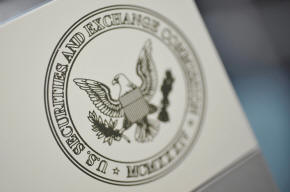|
Wall Street's biggest gold rush of recent years, SPACs are shell
companies that raise funds through a listing to acquire a
private company with the purpose of taking it public, allowing
such targets to sidestep the stiffer regulatory scrutiny of a
traditional initial public offering.
Over the past year, the SEC has been scrutinizing these deals
amid worries over inadequate disclosures, lofty revenue
projections, potential fee conflicts and accounting issues,
according to Reuters' reports and statements by public
officials.
Reuters also reported that the SEC was considering new guidance
to rein in SPACs' growth projections.
SPAC sponsors say the projections are important for investors,
especially when targets are unprofitable startups, but investor
advocates say they are frequently wildly optimistic or
misleading.
In addition, the SEC is considering guidance aimed at clarifying
when a key liability protection for such forward-looking
statements applies to SPACs, Reuters reported.
Market participants expect Wednesday's rule will address some of
these issues, although Reuters could not ascertain more details.
Attorneys expect the agency may also consider subjecting some
SPACs to investment company fiduciary duty rules, which require
disclosure of conflicts of interest.
The U.S. SPAC market experienced a wild ride in 2021, with an
explosion in such deals during the first half of the year
quickly cooling off in the second half as the SEC cracked down
and many deals performed badly.
All told, 604 SPACs raised $144 billion in 2021, according to
data from Renaissance Capital.
(Writing by Michelle Price; Editing by Bernard Orr)
[© 2022 Thomson Reuters. All rights
reserved.]
This material may not be published,
broadcast, rewritten or redistributed.
Thompson Reuters is solely responsible for this content.

|
|





